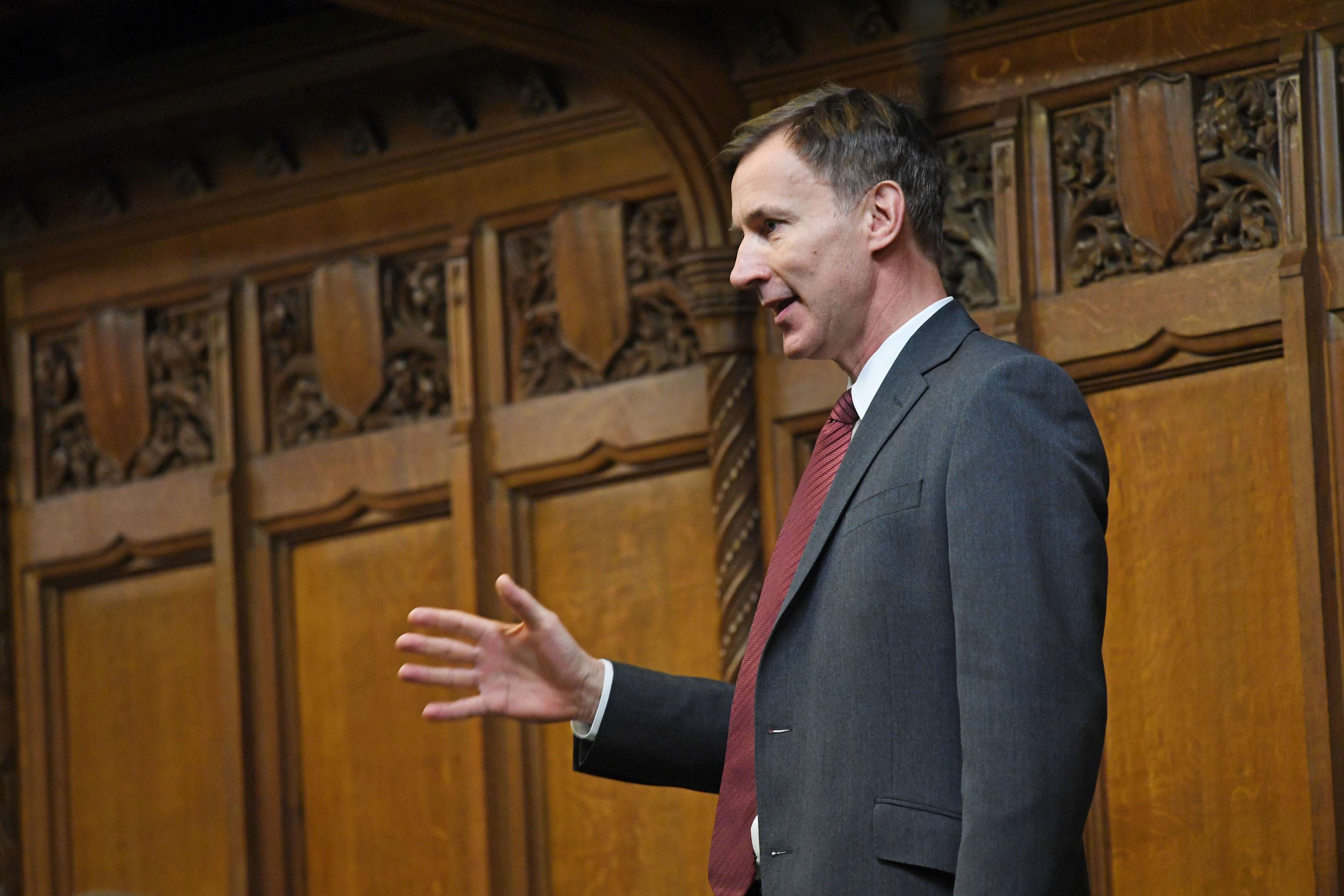Coronavirus: People with learning disabilities ‘at back of the queue’ during pandemic, says Jeremy Hunt
Dimensions UK says people in supported living still not getting regular testing for Covid-19

Your support helps us to tell the story
From reproductive rights to climate change to Big Tech, The Independent is on the ground when the story is developing. Whether it's investigating the financials of Elon Musk's pro-Trump PAC or producing our latest documentary, 'The A Word', which shines a light on the American women fighting for reproductive rights, we know how important it is to parse out the facts from the messaging.
At such a critical moment in US history, we need reporters on the ground. Your donation allows us to keep sending journalists to speak to both sides of the story.
The Independent is trusted by Americans across the entire political spectrum. And unlike many other quality news outlets, we choose not to lock Americans out of our reporting and analysis with paywalls. We believe quality journalism should be available to everyone, paid for by those who can afford it.
Your support makes all the difference.People with learning disabilities have often been at the “back of the queue” during the coronavirus crisis, the former Conservative cabinet minister Jeremy Hunt has claimed.
His remarks came as one of the country’s largest providers for individuals with learning disabilities and autism said government guidance for those in supported living had “consistently” lagged behind that for elderly care homes in the Covid-19 crisis.
Earlier this year, an analysis by the Care Quality Commission found the number of people with a learning disability or autism who died in care setting more than doubled between April and May.
Of the 386 people described as having such a disability on their death certificate within these months, 206 were suspected of or confirmed to have Covid-19, resulting in calls for the government to “put right” its testing programme.
Appearing at the Commons joint inquiry into the Covid-19 pandemic, Steve Scown, the chief executive of disability charity Dimensions UK, said people in supported living were still not getting regular testing for the virus.
“We decide we’re going to buy our own tests to enable Christmas visits (for families) because that’s the only way we’re going to get them,” he said.
Mr Scown added: “Consistently the government guidance for registered care homes has been issued weeks in advance for guidance for supported living services. There are a range of different models, but the guidance for supported living is consistently weeks behind registered care.
“There’s been a clear focus on large registered care homes for older people – I understand that, but there are different models of registered care and there is a wide range of supported living services.”
Also appearing at the inquiry – being undertaken by the Commons health and technology committees – carer James O’Rourke said on Tuesday his family had not been offered tests, which he said would have been useful for to visit his brother, who is in supported living.
In response to the testimonies, Mr Hunt told MPs: “What we’ve seen is a very clear picture of people with learning disabilities at the back of the queue, behind people in care homes who have had a lot of national attention, and they in turn complained about being in the back of the queue behind the needs of the NHS.”
The committee also heard about the impact of coronavirus on people from black and minority ethnic backgrounds with research showing a disproportionate number of deaths of people from these backgrounds during the first wave of the pandemic.
Professor Kevin Fenton, public health and regional director for London at Public Health England (PHE), said issues such as poverty, poor housing and access to health services were key drivers of inequality during Covid-19.
He also highlighted issues with ethnicity data for contact tracing, saying it is less well developed and that there is no routine reporting of how well it is working across different ethnic groups. "That means we are not able to really understand the degree to which we need to enhance some of those interventions or them to work," he said.
The Labour MP Sarah Owen, who sits on the Health and Social Care Committee, said it was “shocking there is still not enough data collected by contact tracing to properly evaluate the impact on diverse groups" and accused Baroness Dido Harding, the chair of Test and Trace, of a “worrying failure”.




Join our commenting forum
Join thought-provoking conversations, follow other Independent readers and see their replies
Comments